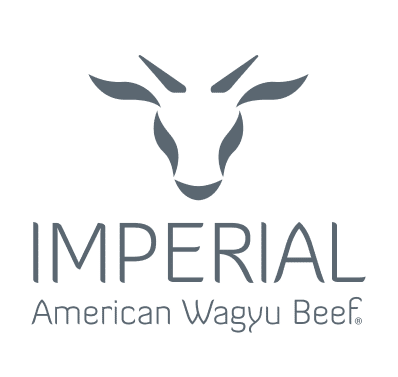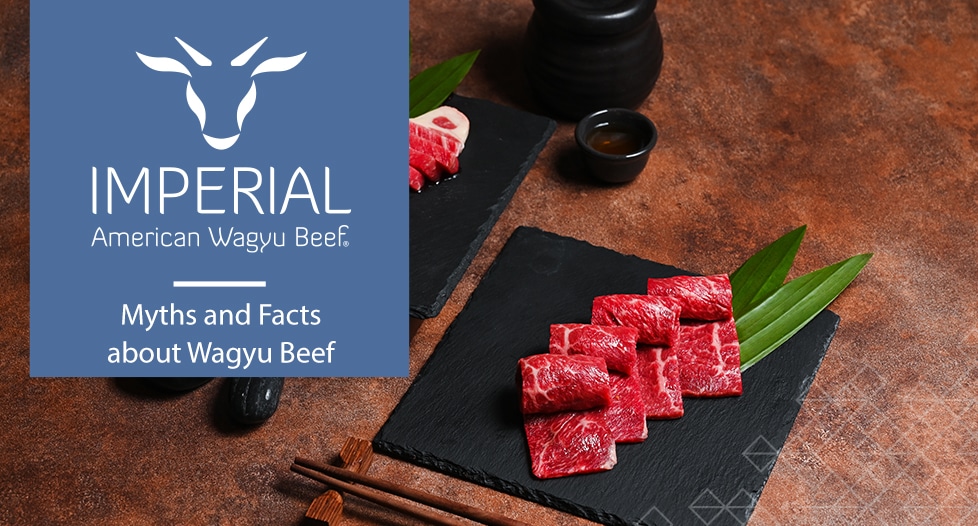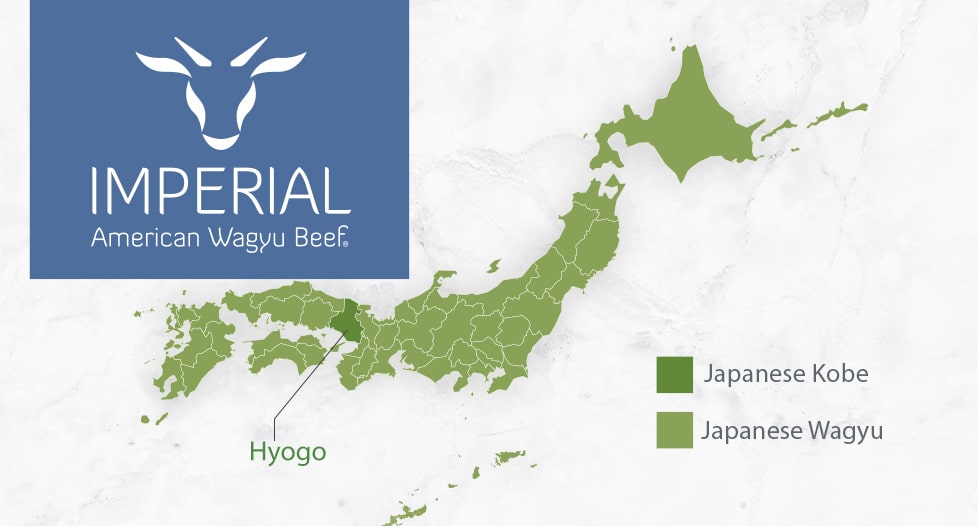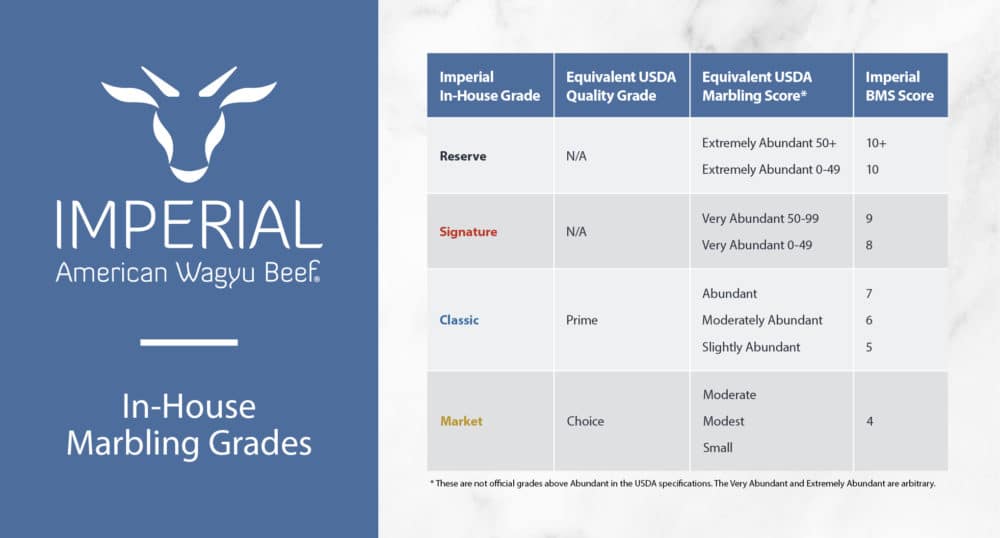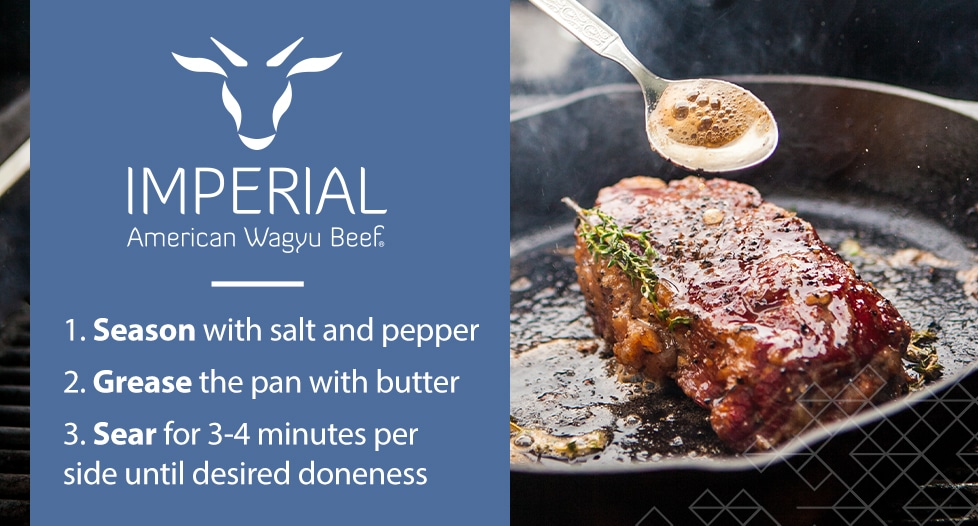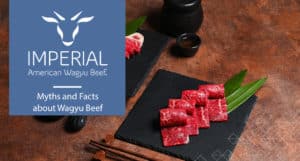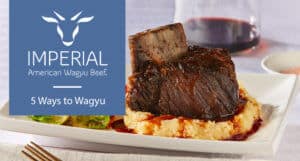Highly prized by beef connoisseurs in the United States and around the world, Wagyu beef carries a legacy of providing a flavor unlike that of any other beef due to its exceptional marbling and elevated raising practices.
But, with that legacy and the larger variety of Wagyu products available today comes a lot of mystery: Are Wagyu cattle really fed beer? How do you know whether the beef you’re trying is Wagyu?
We’ve put together some of the most common misconceptions about Wagyu beef so you can have the knowledge you need when you’re choosing Wagyu.
Myth 1: Kobe Beef is the same as Wagyu beef.
“Kobe” and “Wagyu” are two terms that are often used interchangeably in American culture. However, they do not always refer to the same product. “Wagyu” is a breed of Japanese cattle that produce highly marbled beef, whereas “Kobe” refers to a brand of Wagyu beef originating in Hyogo, Japan. Kobe is the capital city of Hyogo, which is how Kobe beef got its name. So, while all Kobe beef is Wagyu, not all Wagyu is Kobe.
Myth 2: You can only get Wagyu beef in Japan.
While it’s true that there are differences between Japanese and American Wagyu products, you don’t have to go to Japan to experience the elevated flavors of Wagyu beef. Japanese Wagyu is available at some restaurants and sometimes online for purchase. American Wagyu is more widely available and blends Wagyu genetics and are bred with top-performing American cattle to create a unique eating experience for the American palette. You can try American Wagyu at restaurants throughout the U.S. or find a retailer near you to prepare it for yourself.
Myth 3: All Wagyu beef is of the same quality or grade.
The quality and grading of American Wagyu beef products can vary based on the genetics of the cattle, raising practices, the type of cut, and more.
To experience the unmatched flavor that comes with top-quality American Wagyu products, look for producers that are transparent about their practices and raise their cattle to a higher standard of care. While it’s a rumor that Wagyu cattle are pampered with beer, sake, and classical music, you should seek out products sourced from cattle raised naturally, with authentic genetics, and graded according to standards modeled after the Japanese Beef Marbling Standards (BMS) scale. Since Wagyu beef often scores higher than Prime—the highest grade on the USDA’s Beef Quality Grading scale—producers that utilize Japanese Beef Marbling Standards demonstrate a higher commitment to producing authentic, exceptional American Wagyu.
Myth 4: The high fat content makes Wagyu beef unhealthy.
Because Wagyu beef features remarkable amounts of marbling—intramuscular flecks of fat within the beef—it’s easy to assume that the higher fat content makes Wagyu beef unhealthier than other beef products.
However, Wagyu beef has high proportions of heart-healthy fats and is a significant source of protein and other vital nutrients. There are also several lean cuts and healthy recipes to choose from—American Wagyu Ball Tip Steak and Bottom Round Roast, for example, that offer the buttery flavors of Wagyu and can be marinaded or slow-cooked to fully bring out the tenderness.
Myth 5: It’s hard to prepare American Wagyu beef unless you’re a pro.
Because Wagyu is such a prized item that we tend to associate with restaurants, there’s a tendency to think only chefs can prepare it (or that Wagyu choices are limited to steak). But, preparing American Wagyu beef is similar to preparing other beef products—all you need is salt and pepper, and you’ll want to avoid overhandling or overcooking to preserve the juiciness and flavors.
Check out our tips for preparing American Wagyu steak and ground beef or explore our recipes to get started. Whether you’re cooking a family dinner or making finger foods for game day, Imperial American Wagyu Beef can turn any occasion into a celebration. Shop our products and experience the noteworthy flavors that come only with the finest American Wagyu beef.
